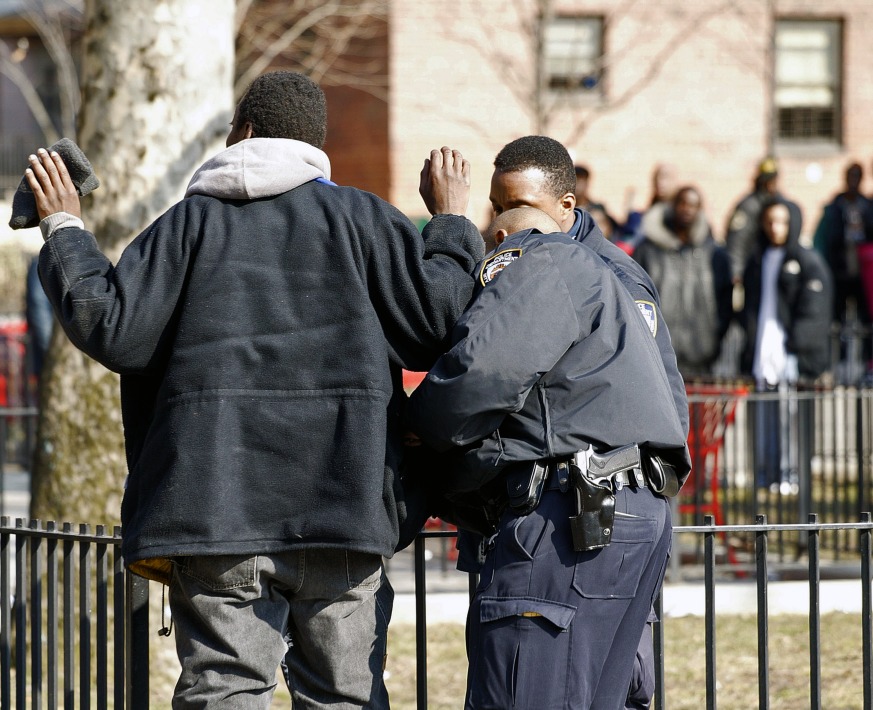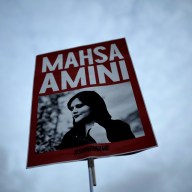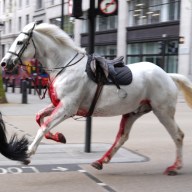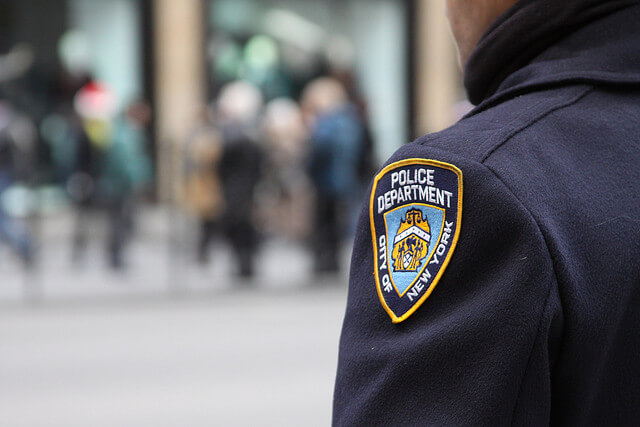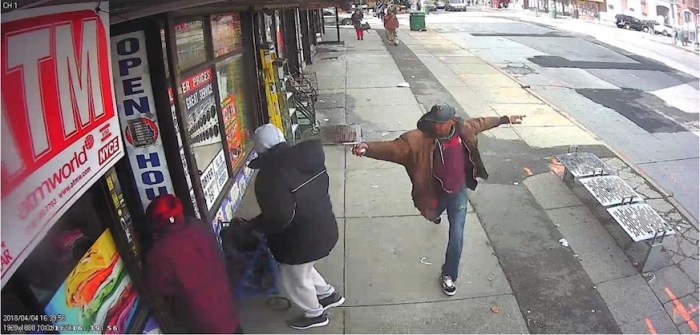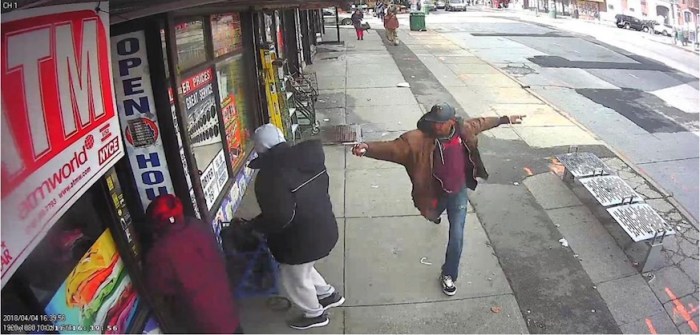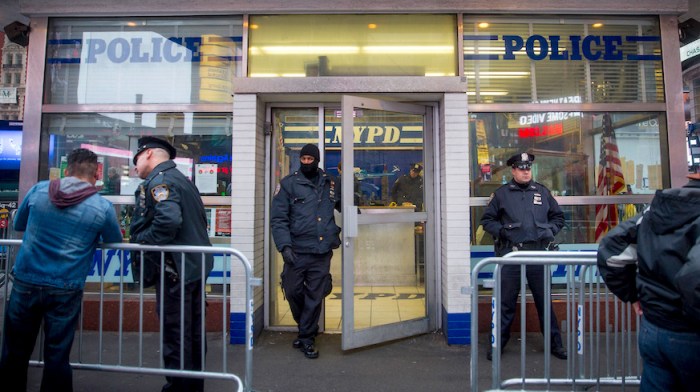Many New Yorkers of color who live in heavily policed areas of the city feel “harassed, surveilled and disrespected” by police, a new NYCLU survey found.
The New York Civil Liberties Union surveyed roughly 1,500 New Yorkers from both heavily policed and lightly policed areas to learn more about their experiences amid citywide efforts to reduce NYPD stop-and-frisk practices.
“Five years into Mayor de Blasio’s tenure, the tale of two cities lives on in the vastly different ways that New Yorkers experience policing,” said NYCLU Executive Director Donna Lieberman. “The NYPD maintains that flooding neighborhoods with police makes people feel safer, but our survey reveals the opposite is more often true. The majority of New Yorkers want good schools and well-paying jobs to improve their neighborhoods, not broken windows policing.”
The NYCLU survey was conducted between October 2016 and May 2017 in the heavily policed communities of Brownsville, East Harlem and the South Bronx and lightly policed Williamsburg, Park Slope, Upper East and Upper West Sides, Greenwich Village, SoHo, the East Village, Riverdale and Spuyten Duyvil.
What the NYCLU survey on NYPD policing found

• 67 percent of respondents in heavily policed areas fear having a friend or family member killed by the NYPD, while 15 percent in lightly policed areas felt the same.
• 85 percent of respondents in heavily policed neighborhoods said they actively changed their behavior, relationships, use of space or schedule to avoid NYPD surveillance.
• 41 percent of respondents in heavily policed communities reported that they endured extreme physical force from the NYPD, while 4 percent said the same in lightly policed communities
• 48 percent of respondents in heavily policed communities said the NYPD wrongly accused them of committing a crime.
• 73 percent of respondents from heavily policed areas had at least one type of police-initiated contact, while 28 percent in lightly patrolled areas said the same.
• 44 percent of those in heavily policed neighborhoods would rather fewer NYPD officers in the area, a sentiment shared by 24 percent of counterparts in lightly policed areas.
NYPD, mayor respond to NYCLU survey
“Whether it’s been eliminating the illegal overuse of stop-and- frisk, retraining the entire police force or introducing body cameras, Mayor de Blasio has led a paradigm shift in the way our City is policed. With this transformation has followed a steady decrease of civilian complaints, fewer arrests and historic-low crime rates,” Olivia Lapeyrolerie, deputy press secretary for Mayor Bill de Blasio, told Metro when asked about the NYCLU survey Friday.
“What we are trying to do and are doing in the NYPD is to build trust all throughout New York City. It’s not going to be done overnight, and it’s going to take time,” NYPD Police Commissioner James P. O’Neill said at an unrelated press conference Thursday.
Neighborhood policing, in which the same officers work the same shifts in the same area to increase familiarity with local residents and issues, is in 70 of 77 precincts, all housing Police Service Areas and has started in transit districts, O’Neill said.
“Everything we do is to make sure that the cops on patrols, answering radio runs and on foot posts engage with members of the community and they build that trust,” he added. “It’s a process that takes time. This is the biggest police department in the United States, and our levels of force are going down, our use of deadly physical force has gone down — everything we’re doing is improving. It’s a big battle for us, a big challenge for us is to create that reality and overcome those perceptions.”
RELATED: Tennis pro James Blake criticizes NYPD disciplinary system

